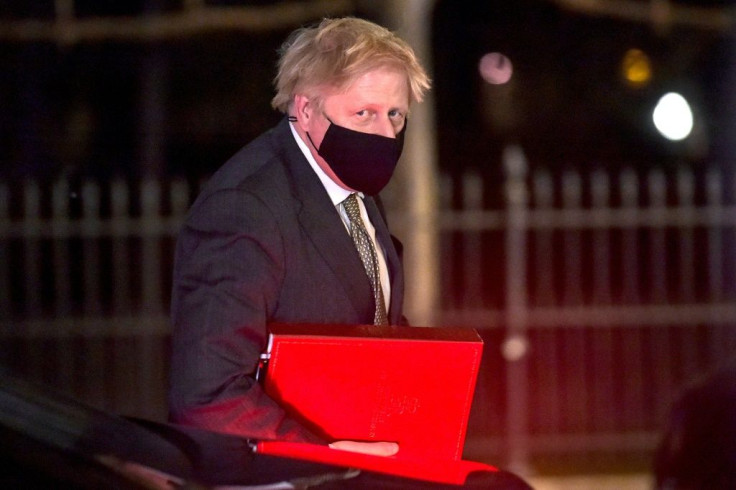UK Demands EU Concessions Ahead Of 'Moment Of Finality'
Britain on Thursday said talks to secure a post-Brexit trade deal with the European Union will not go beyond this weekend unless there is "substantial movement" from Brussels in key areas.
Prime Minister Boris Johnson and European Commission president Ursula von der Leyen met in Brussels on Wednesday, and gave themselves until Sunday to decide whether to keep talking.
Asked if talks could be extended, Foreign Secretary Dominic Raab told BBC television: "I can't rule it out but I think we are rapidly approaching the point now where we need some finality.
"I think it's unlikely but I can't categorically exclude it and of course it depends on the progress made between now and then."
Britain left the EU in January and is in a standstill transition period until December 31 while both sides thrash out the terms of their new trading relationship.
But months of negotiations have been stuck on the extent of EU access to UK fishing grounds and fair competition rules.
Raab, a former Brexit minister in the government of Johnson's predecessor Theresa May, said there had not been enough "pragmatism and flexibility on the EU side".
"We're talking about fisheries, level playing field commitment, the EU's attempt to lock us into their rules. I think we need to see substantial movement," he added.

He later told BBC radio that Sunday's deadline was a "moment of finality" and said: "The EU has to move significantly on both those points because they're points of principle.
"We're not going to be treated in a way that no other country would accept or the EU would not accept."
Britain's chief negotiator David Frost and his EU counterpart Michel Barnier resume talks in Brussels on Thursday in what could be a final push in the years-long Brexit process.
Their meeting comes as von der Leyen published a fallback plan in the event of "no deal", before she briefs leaders of the 27 EU member states about the talks.
Failure to secure a deal by the end of December will see Britain revert to World Trade Organization (WTO) rules, with tariffs and quotas, from January 1.
In parliament, the main opposition Labour party's Brexit spokeswoman, Rachel Reeves, said the failure to strike agreement had caused "huge dismay".
"How has it come to this? Businesses are desperately trying to plan and need to know what on earth is going on," she said.
Senior minister Penny Mordaunt said the government was working "tirelessly" for a deal. "There is hope of that happening, even though things do appear gloomy," she said.
But complaints that the government is not prepared for radical changes on January 1 were "not helpful" and "not in the interests of the country", she added.
© Copyright AFP 2024. All rights reserved.





















